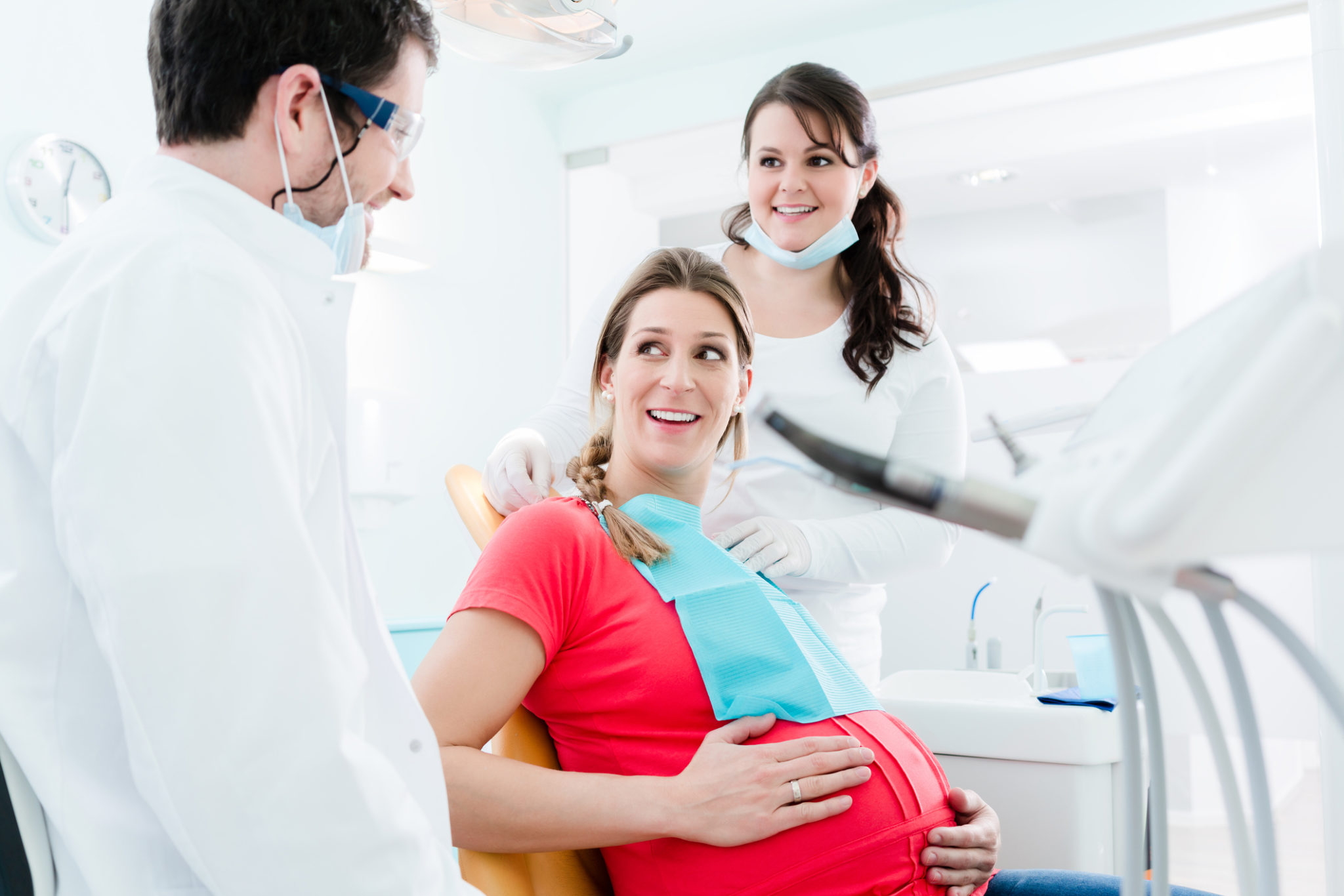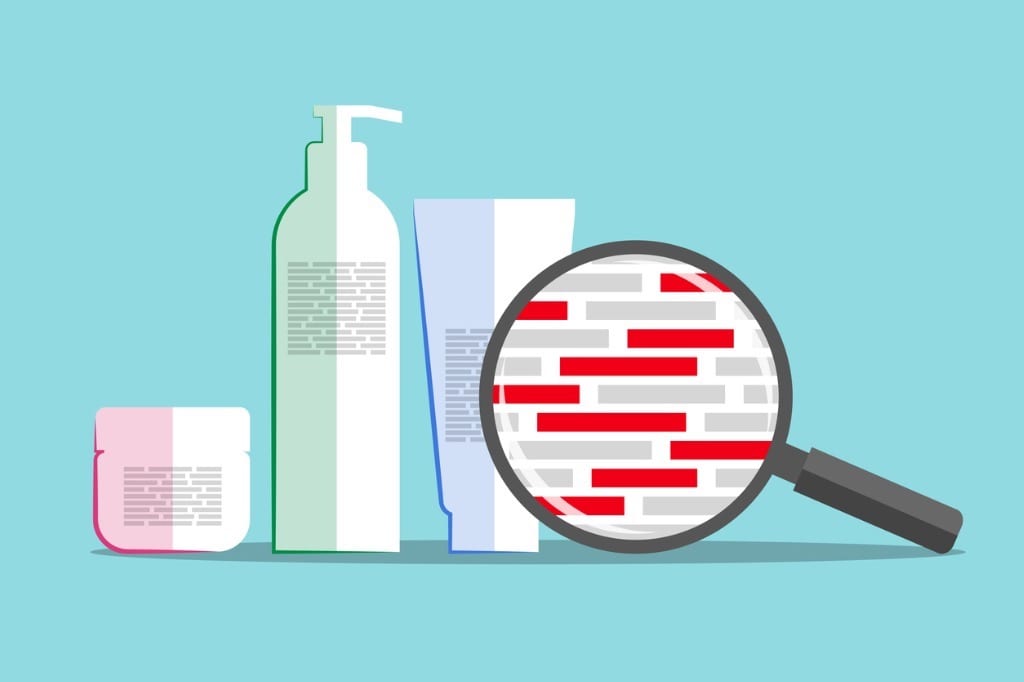Pregnancy is one of the most wondrous phases of a woman’s life. The plans and dreams for the baby are endless. The focus of the mom-to-be, rightfully, is concentrated on the needs and care of the growing fetus. So, it is not surprising that no matter how meticulous a woman has been about her oral health before, she may take a step back as soon as she becomes pregnant.
Meanwhile, morning sickness and gastric reflux, cravings for various appetizing foods, and improper cleaning habits, collectively act to impair your oral health. It is essential, therefore, that women keep an eye on their dental care to avoid any complications during pregnancy and the post-natal period.
Oral health complications of pregnancy
Morning sickness
Morning sickness is related to increased hormone levels and resultant metabolic changes in the body. Despite the fact that morning sickness is not harmful to the baby or the mother’s body, it has a direct impact on dental health.
According to Americanpregnancy.org, more than 50% of women experience morning sickness, usually during the first trimester. It is characterized by nausea and vomiting that can occur at any time of the day but is most common in the morning.
The repeated influx of stomach acid into the oral cavity can lead to a softening of tooth enamel. Persistent exposure may cause tooth decay and sensitivity. Brushing shouldn’t be done immediately after vomiting as the risk of erosion of the softened enamel is high.
Gestational gingivitis
Gingivitis is a condition where the gums become swollen, red, tender, and inflamed. This happens due to plaque and bacteria building up in the oral cavity. Poor oral hygiene and inadequate cleanings are responsible for gingivitis. Also, pregnancy brings a rush of hormones, including progesterone which elevates the immune response to plaque and bacteria.
Gingivitis is the most common dental ailment of pregnancy with 75% of women falling prey to it. Deep cleaning is recommended even in the second and third trimesters.
If the situation goes untreated, it can lead to periodontitis. This is an advanced periodontal condition where the gums recede from the teeth and create pockets where even more bacteria can build up and lead to outright infection. This condition may require antibiotics and even a surgical procedure.
Pregnant women should do everything possible to maintain good dental health. That means following a good oral regime, brushing, and flossing. Regular dental visits and cleaning, good oral hygiene, avoiding sugar, acids, etc. from the very start of pregnancy can possibly help prevent gingivitis.
Related Content: Love the Gums You’re With: Preventing Gum Disease
Pregnancy tumors

Severe gingivitis with pyogenic granuloma visible. Wikimedia. This file is licensed under the Creative Commons Attribution-Share Alike 3.0 Unported license.
Pregnancy tumors are soft, smooth, red, berry-like growths that appear on the gums during pregnancy. Other names for pregnancy tumors are pyogenic granuloma, granuloma of pregnancy, and lobular capillary hemangioma.
These lesions affect about 10% of pregnancies and usually appear in the setting of preexisting pregnancy gingivitis. Although they can appear at any time, they are most common in the second trimester.
Despite the name, pregnancy tumors are not cancerous. Rather, they develop as a result of a strong immune response to local inflammation from plaque and food particles. Interestingly, the intensity of the response correlates with the intensity of irritation in the gums rather than the amount of plaque.
Surgically removing these granulomas is not necessary unless they cause complications, such as pain, bleeding, difficulty eating or speaking. They usually disappear on their own after pregnancy. Lesions may be removed by surgical excision or laser. They recur in roughly half of the cases.
Loose teeth
Pregnancy Myth: Losing a tooth for each birth is a myth.
In pregnancy the high levels of progesterone and estrogen act on the tissues and bones of the oral cavity. In addition, when gingivitis advances to periodontitis, gums may recede and bone may be lost from the jaw. Infection in the structures around the teeth combined with the loss of bone can result in loose teeth. Good care of gums through deep cleaning, scaling, root planing, and proper oral habits help keep this in control.
Oral care during pregnancy
Mother’s oral health impacts the baby
The overall health of a newborn depends on the mother’s overall health. Like a diabetic mother takes a lot of care to make sure her fetus is not adversely impacted by the disease, she should also prioritize proper oral care.
Poor oral hygiene leads to invasion of the mouth by bacteria. If we neglect it, plaque accumulates as tartar in the teeth. This starts with bad breath, swollen and red gums. Proper care at this stage could effectively stop it.
Failure to do so may lead to the worst enemy of pregnancy – periodontitis. This inflammatory condition has serious and direct effects on the fetus.
The immune response to the spreading infection and bacterial flora produces cytokines, prostaglandins, and other substances which act directly on the fetus. This can trigger preterm labor. Periodontitis has also been associated with low birth weight and the development of preeclampsia.
Planning for oral health during pregnancy
Planning for pregnancy needs to include plans to maintain good oral health. Your visits to the dentist should be consistent in the time period surrounding pregnancy.
Consider informing your dentist about your plans to conceive. And be sure to let him know about your pregnancy in the earliest stages. It is easier to handle situations that require more intensive treatment in the early stages of pregnancy as opposed to in the late stages.
It is important to know that dental x-rays with appropriate shielding are considered safe during pregnancy. Further, be sure to ask your dentist if any medications that are prescribed are considered safe in pregnancy. Regular cleaning and checkups of your oral habits are a must.
FDA warning regarding dental amalgam
On September 24, 2020, the FDA issued updated recommendations concerning dental amalgam. Amalgam is a mercury-containing filling material used to restore part of a decayed tooth.
People who may have a greater risk for potential harmful health effects of mercury vapor released from the device include the following:
- Women who are planning to become pregnant
- pregnant women
- those who are nursing
- young children
- people with certain medical conditions
The FDA recommends that people in those higher-risk groups should have their teeth filled with alternatives to dental amalgam, such as composite resins and glass ionomer cement fillings. Further, they caution that dental amalgam-related mercury vapor release may be highest during placement or removal of the filling.
The FDA does not recommend that anyone remove or replace existing amalgam fillings in good condition unless it is considered medically necessary. This is because removing intact amalgam fillings can cause a temporary increase in exposure to mercury vapor and the potential loss of healthy tooth structure. This could potentially result in more risks than benefits.
While the available evidence suggests that dental amalgam use has generally declined over recent years, due to more alternative products being offered and used effectively for dental restorations, high-risk individuals, such as pregnant or nursing women and women planning on becoming pregnant should discuss alternative products for restoring teeth with their dentist.
Related Content: How Pregnancy Affects Sleep and What You Can do About it
Conclusion
Pregnancy can have adverse effects on the oral cavity. This requires extra vigilance on the part of the pregnant woman. Further, good oral health is important for good gestation and healthy babies.
Do not hesitate to visit a dentist, get a cleaning and or other dental procedures. And, be sure to follow a healthy oral regime to preserve your dental health.
Hints for healthy oral care during pregnancy:
-
- Quit smoking
- Avoid sugar
- Avoid acidic foods
- Sleep well
- Maintain regular oral care
- Proper calcium during pregnancy builds healthy bones
These practices will help take you through pregnancy in good health and good health for your baby.
The Medical Reviewer updated this story to include a recent recommendation from the FDA regarding dental amalgam.
Sonal Bhoot, DMD
Website:
https://dentalexpressionsleawood.com/
Dr. Sonal V. Bhoot is the founder of Dental Expressions Leawood.
Dr. Bhoot has over 15 years of dental experience. She received her doctorate in Dental Medicine (DMD) in 2003 from the New Jersey Dental School. She is a proud member of American Dental Association(ADA), Academy of General Dentistry(AGD).
Dr. Bhoot has certifications and proficiencies in
• cosmetic dentistry
• CEREC training
• Invisalign
• endodontics
• oral surgery
• TMJ disorders
• restorative dentistry
• laser treatments
• and she treats the whole family, including children.
She enjoys reading and writing in her leisure time.
Comments:
Leave a Reply
Comment will held for moderation









Providing the dentist crucial information, from medications to special advice from a physician, is definitely one of the most important things a pregnant woman must do to ensure safety during dental checkups/procedures.
What are your thoughts on the research looking at CoQ10 for gum health? https://www.ncbi.nlm.nih.gov/pmc/articles/PMC2991687/
While available literature has indicated that periodontally diseased tissues do show a marked reduction in CoQ10 levels, its role as an antioxidant has yet to be explored to the fullest potential. Existing research also points to the possibility of CoQ10 as a treatment option, particularly in combination with certain vitamins. Using it as an adjunctive treatment in periodontal disease is, as of now, entirely dependent on the treating dentist’s personal belief. However, there is a dearth of literature on this point and a need for more research-based evidence that may result in a solution that combines CoQ10 with an enzyme or vitamin, and that effectively improves gum health.